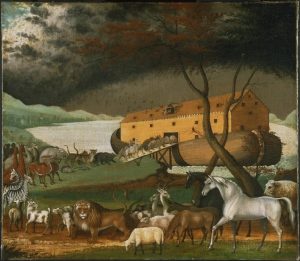One of the characteristics of the Book of Leviticus is the laying out of laws and regulations with regard to ‘Tum’aha Ve-Ta’harha’ {טומאה וטהרה} (Hebrew for ‘unclean and clean’ – respectively).
In Leviticus, chapter 11, there is a very specific description of the ‘Kosher and non-Kosher animals.’ As a guiding rule, kosher animals – meaning ‘clean’ – should have three main features:
“These are the living things that you may eat among all the animals that are on the earth. Whatever parts the hoof and is cloven-footed and chews the cud, among the animals, you may eat.” (Leviticus 11:2-4)
In the next verses, the Bible emphasizes and calls by name specific animals which are unclean:
“Nevertheless, among those that chew the cud or part the hoof, you shall not eat these: The camel, because it chews the cud but does not part the hoof, is unclean to you. And the rock badger, because it chews the cud but does not part the hoof, is unclean to you. And the hare, because it chews the cud but does not part the hoof, is unclean to you.” (Leviticus 11:4-7)
In the English translation (as well as in other languages) one cannot see that there is a very clear and obvious grammatical difference between the descriptions of the different animals.

In the original Hebrew, the phrase ‘does not part the hoof’ – which appears in all three cases as exactly identical – is actually written differently for each animal.
Therefore, when we have a closer look at the grammatical Hebrew structure, we will notice that ‘does not part the hoof’ appears first in the present tense (‘Mafris Parsaha’ {מפריס פרסה}), then in the future tense (‘Yafris Parsaha’ {יפריס פרסה}) and finally in the past tense (‘Hefrisaha Parsaha’ {הפריסה פרסה})!
One of the most fascinating medieval Jewish theological interpretations creates an illustration from this unique grammatical structure and explains this in the following way:
Usually people have the tendency to judge who is ‘clean’ and who is ‘unclean’ (meaning who is a good person and who is not) very quickly. According to this interpretation, one should be extremely careful before judging another person and needs to be very knowledgeable about the present, past and even the future (meaning to have faith that this person will change his ways) of the other person before thinking of him or her as ‘unclean’.
